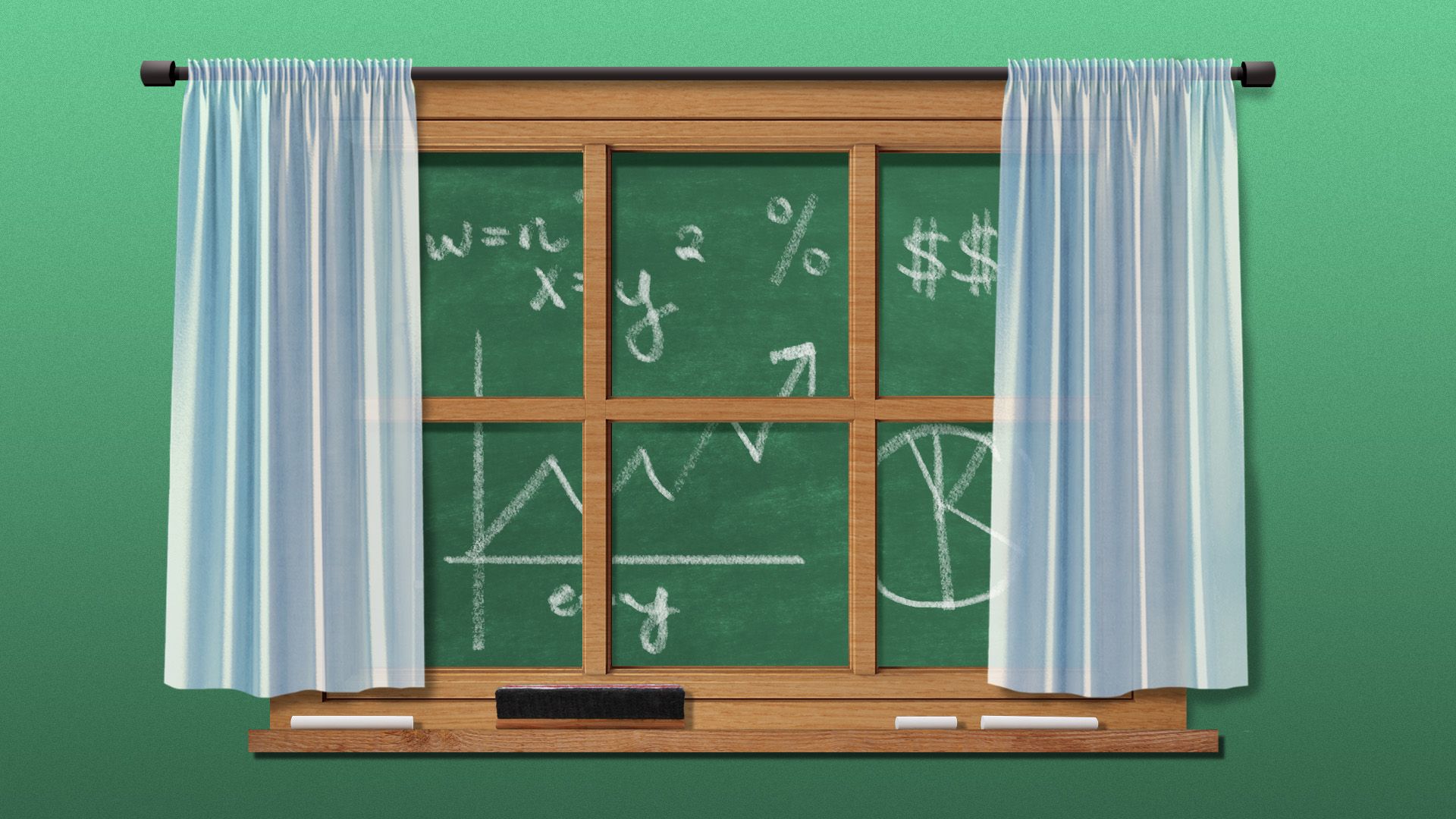The pandemic is giving Americans an economics crash course
Add Axios as your preferred source to
see more of our stories on Google.

Illustration: Sarah Grillo/Axios
“Future expectations” used to be a tough economic concept for students to grok, said Morgan Taylor, an economics professor at University of Georgia in Athens. It was hard to grasp a situation in which, say, you would expect a shortage of something, and that would change your demand for a good.
Then came the great toilet paper rush of 2020. We all hoarded TP, expecting supply to run out. These days, students get the idea pretty easily.
Why it matters: The weirdness of the pandemic economy provides “fabulous examples,” for econ professors around the country, Taylor and other professors told me. The material all of a sudden feels “relevant and fresh."
- Students can use what they learn to explain to friends what’s happening with rising prices, various shortages and, of course, the job market — which they'll soon be entering.
- With more students back in-person, professors say they're feeling a new urgency from them to learn, less palpable during remote school.
Details: The other day, Darin Wohlgemuth was teaching the concept of substitutes in his economics class at Iowa State, using his go-to example: If there isn’t Coke, you can turn to Pepsi.
- Then he mentioned computer chips: What do you do if you get all your chips from one supplier?
- “That’s a really big problem in Michigan,” one student called out, referring to the chip shortage facing the auto industry (and driving up the price of cars).
“That was a fun connection,” Wohlgemuth said.
- Hand sanitizer also keeps coming up in classrooms. Wohlgemuth shows students a photo he snapped at Aldi’s of the price crossed out on a bottle of the once-hot product.
In Paul Graf’s classes at Indiana University in Bloomington, students talk about how tech is replacing labor, as they order food in restaurants from kiosks instead of waiters.
- “I always tell students, it’s a great time to be learning economics,” Graf said.
Younger kids are learning supply and demand in a way that hits home: via Girl Scout cookie shortages.
- A troop leader in New York is giving her 10-and 11-year olds inflation lessons, the WSJ reported last week.
- Yes, but: "It's boring," one fifth grader told the newspaper.
The bottom line: We’re all trying to make sense of the world. And economics, maybe once seen as somewhat esoteric by younger folks, is getting a fresh look.
- “It’s been a rough couple of years, one of the things that helps us cope is sense-making,” said Justin Wolfers, a leading economics professor at the University of Michigan. “Economics certainly helps you understand the broader forces shaping your life.”
Editor's note: This story originally published on Feb. 15.
